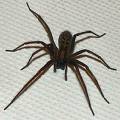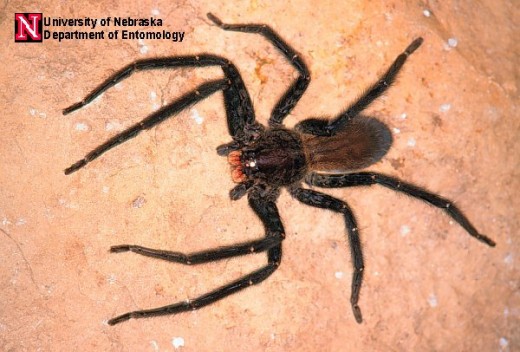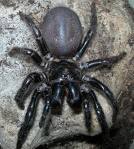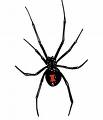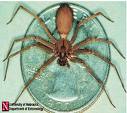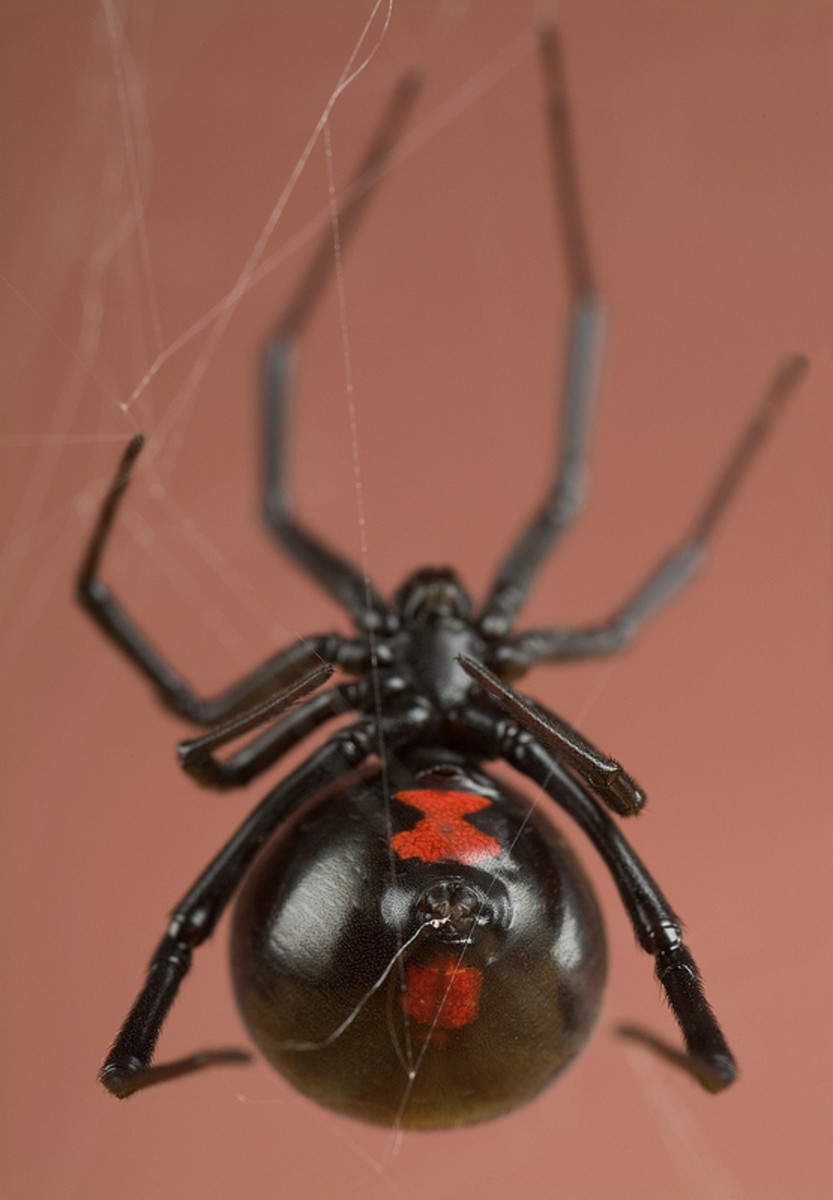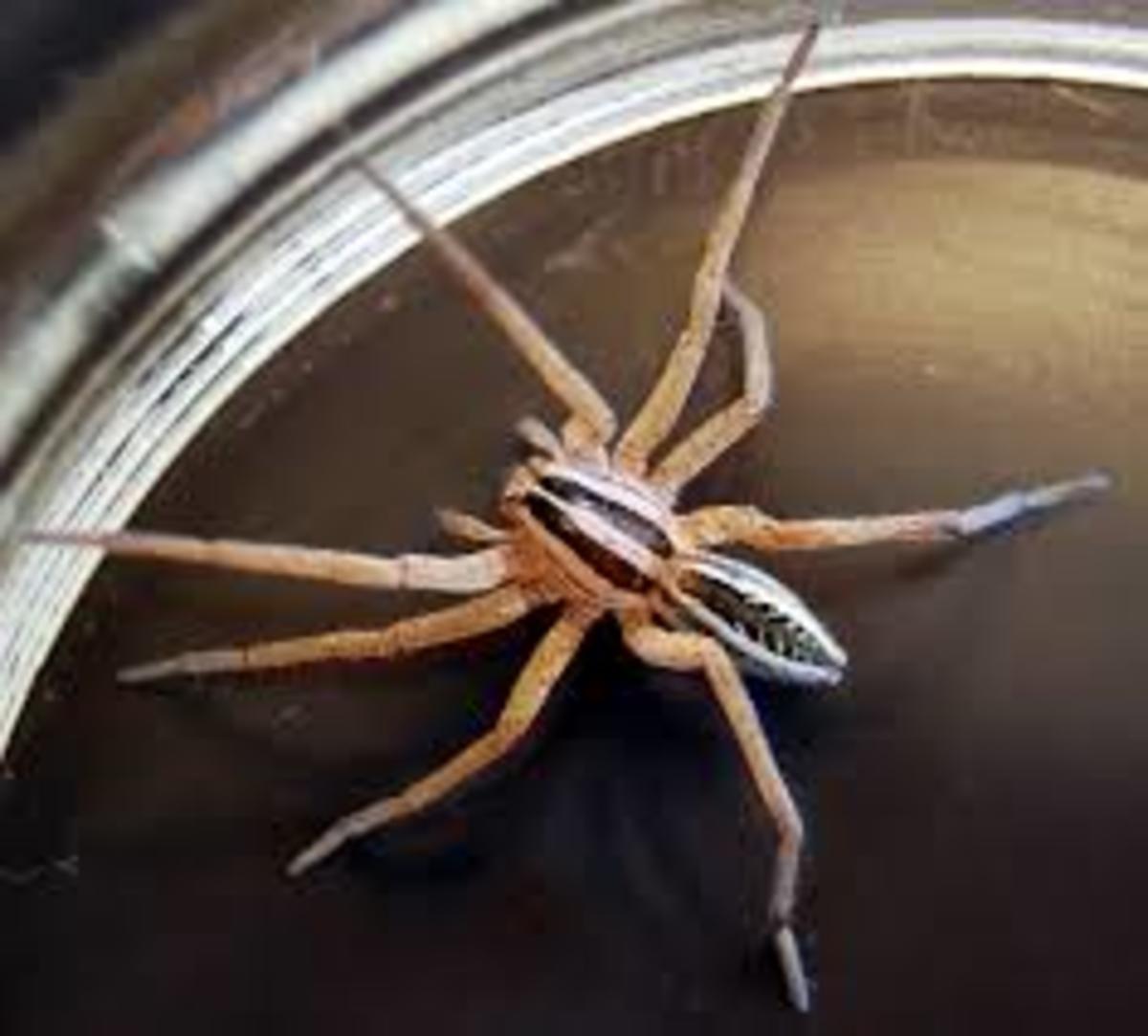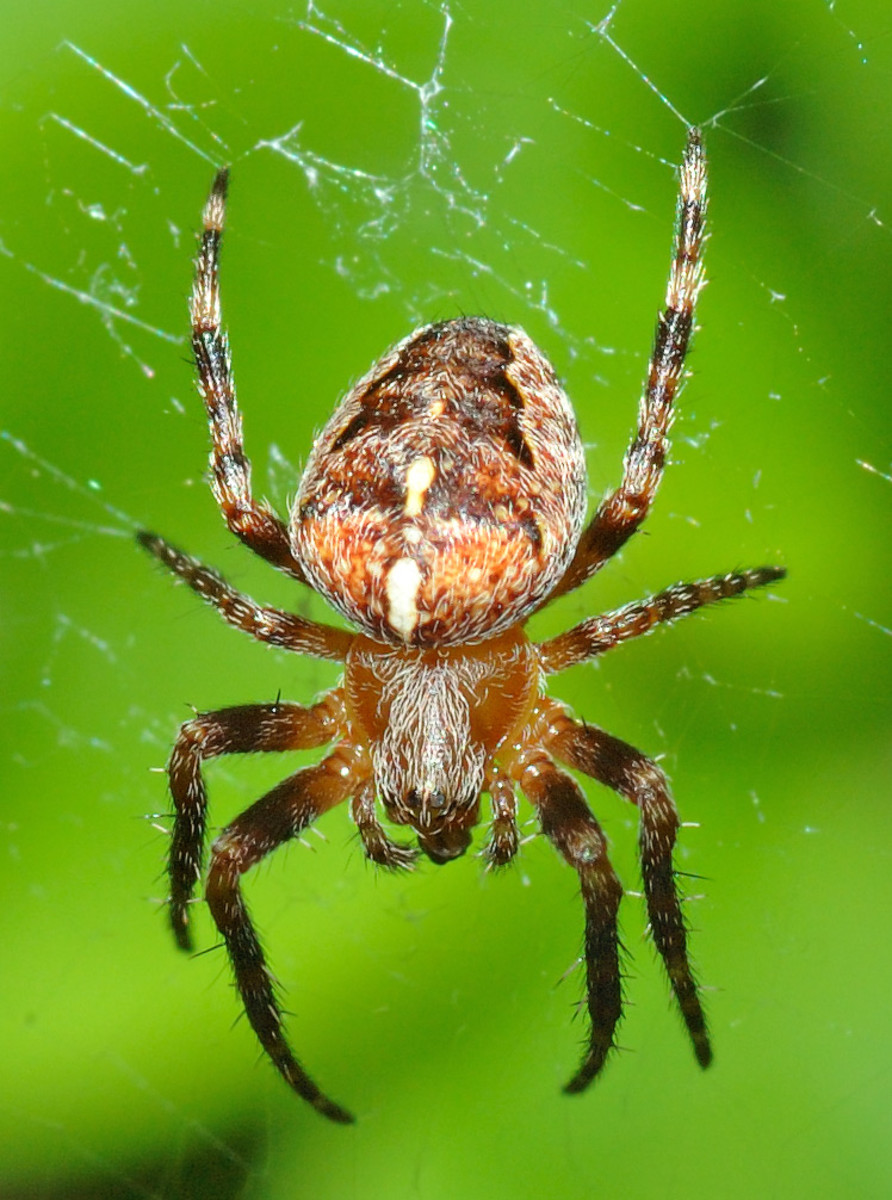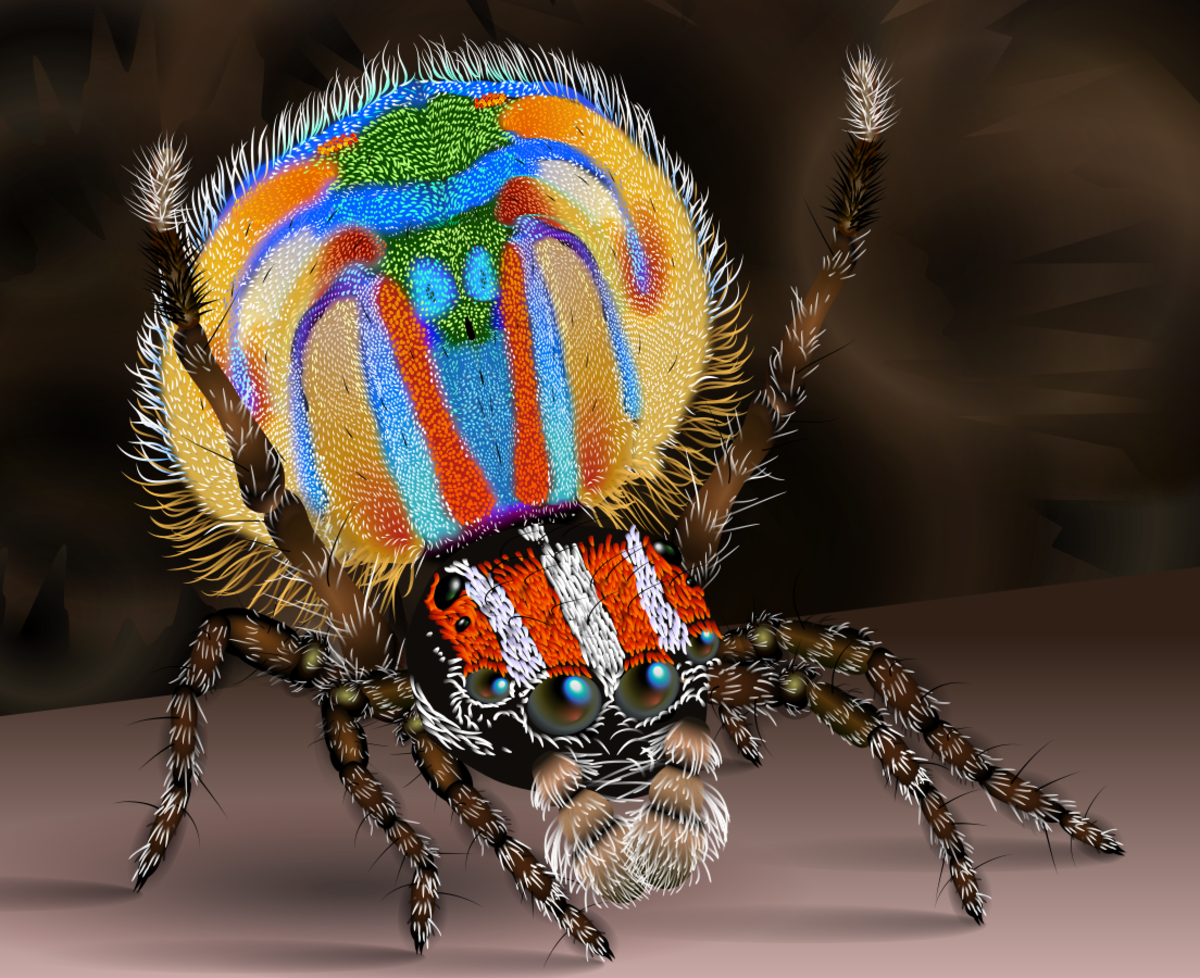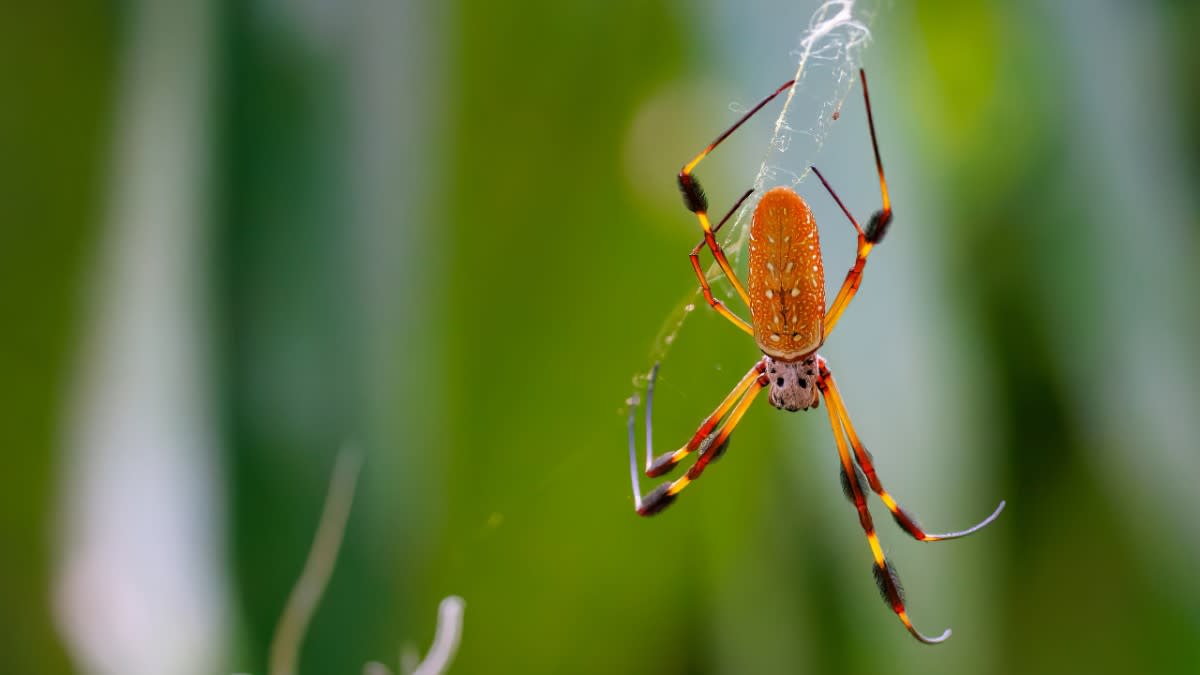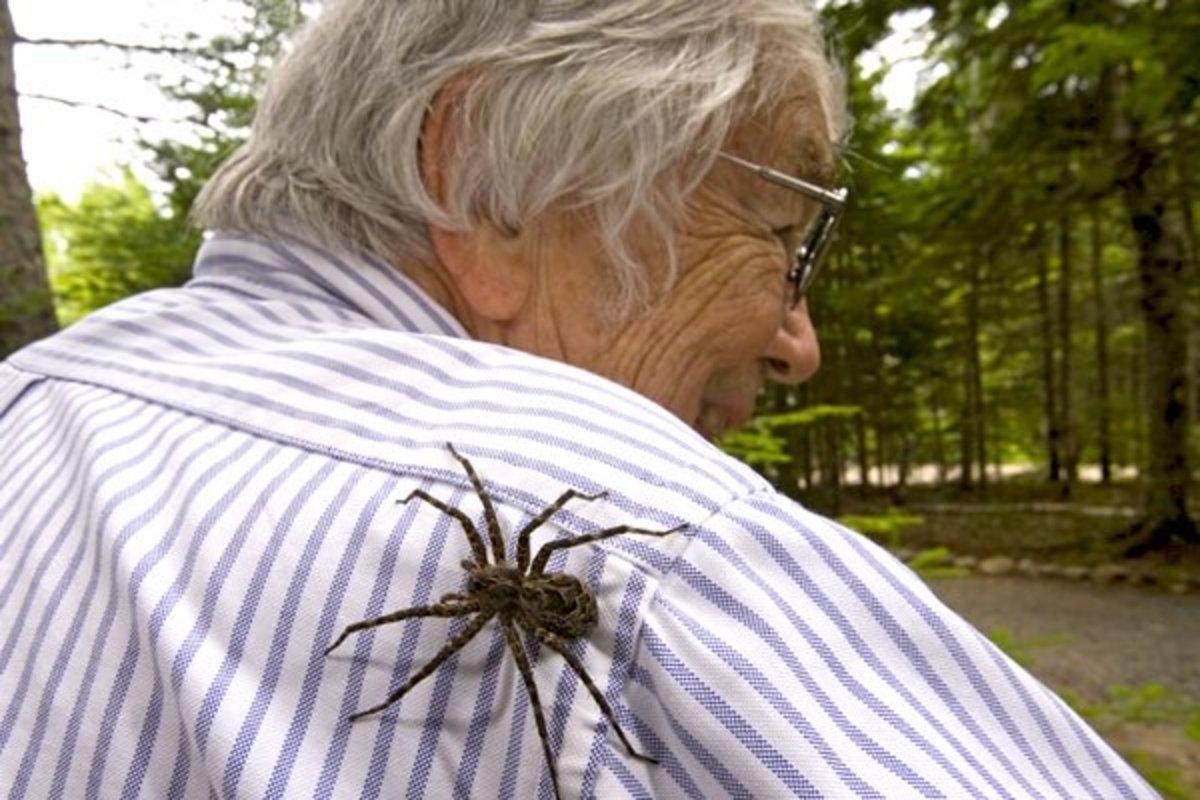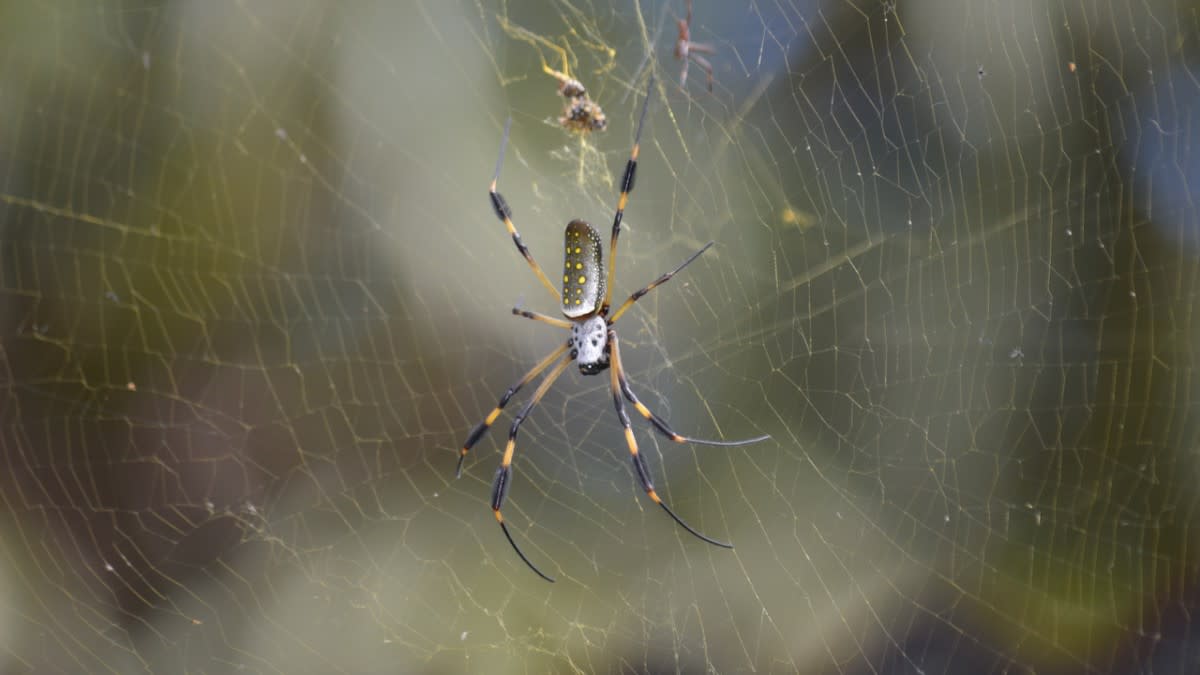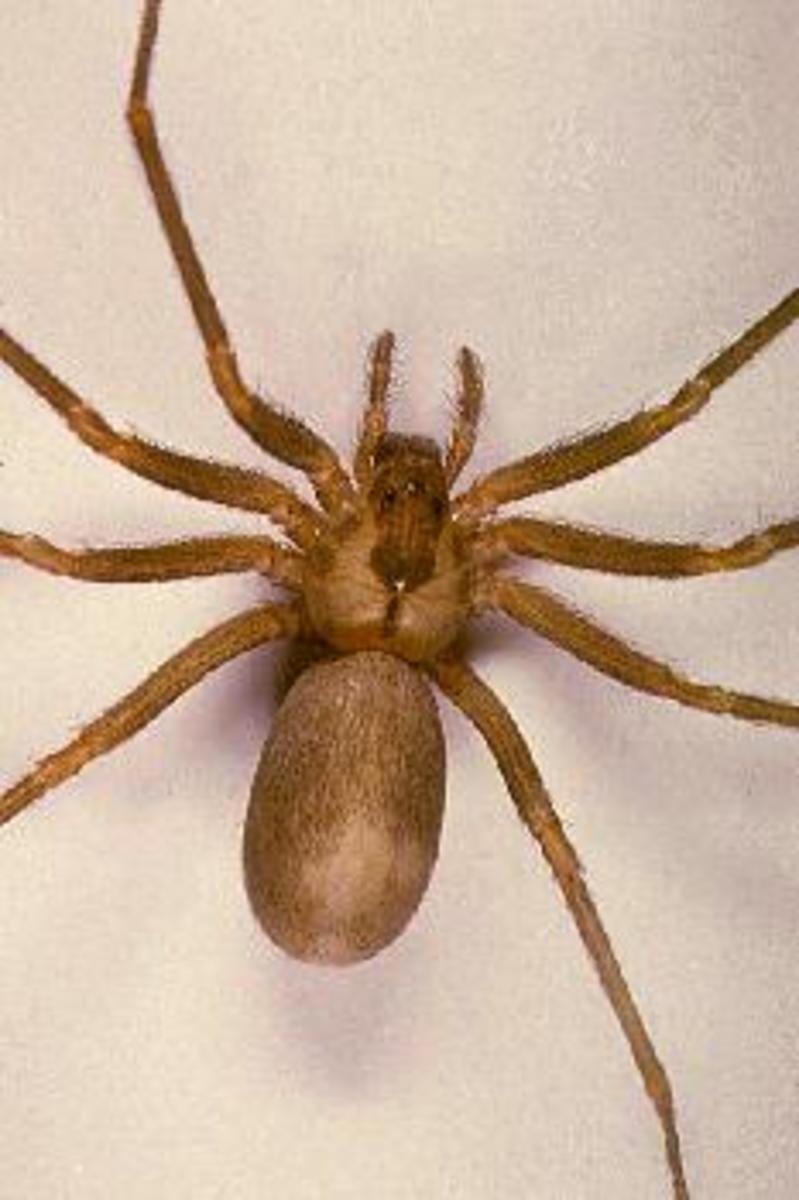- HubPages»
- Education and Science»
- Life Sciences»
- Entomology»
- Spiders & Arachnids
Spiders: Friends That We Fear
Spiders rarely use venom on man unless molested
Click thumbnail to view full-size






These tiny marvels remembered in verse.
Spiders: Man’s Other Best Friend.
The Perfectionist
“Spinning moonbeams, dew and dawn light;
gleaming silver in the morn light;
tough as steel with magic kissed.
Busy spinner; aerial fatalist;
careful weaver, such perfectionist;
making mummies on my porch.”
Spiders: why does the very name strike loathing and even terror into many hearts? Is it because they were once huge creatures who could really do us harm when the world was all forests and we were hunter-gatherers? But biologists and palaeontologists would soon put us right on that score, they have been much smaller from the time man was evolving from far simpler creatures. If there were giant spiders, they were around when the dinosaurs walked the earth or even before. We weren’t even a glint in Nature’s eye back then.
Malevolence in Miniature
The creature spun, reared;
its multi-faceted eyes glowed;
took in the menacing wall.
Pink, rough textured, unmoving.
Lightning stab of ebon fangs;
mamba strong venom spurts:
once, twice, thrice, the strike.
The wall remains unmoving.
The tiny assassin resumes his stroll:
fascinated, the watcher withdraws
his tickled finger, carefully.
So not to crush the tiny money spider.
Is it then because Hollywood has made movies showing awful, slavering eight-legged creatures with 2-foor fangs, poison dripping as they sunk them into a screaming homo sapiens, and lifted him, struggling as he quickly expired in screaming agony?
But there were no movies around when Little Miss Muffet was riveted to her chair by the sight of a quite small arachnid busy climbing its web with no thought of having a piece of Muffet for lunch. What Miss M. appeared to have is what many of us have, arachnophobia, with little rational base to it.
I mean, how many of you have ever been bitten by a spider? And if you have, how many of those sufferers activated the spider’s defensive capability by interfering with it as it went about its ‘arachnactivities? Trod on it, picked it up, tore its web down or otherwise pissed it off? How many of this group were unlucky enough to have been bitten by a really dangerous spider? After all, there are only half a dozen species with a deadly venom and only one of these is really nasty. (The Brazilian Wandering Spider). Of the other baddies, the Australian Funnel Web, or Trapdoor Spider, the Black Widow and the Brown Recluse: none are known to attack man gratuitously.
But spiders don’t have to be particularly venomous to make us nervous. The huge giant house spiders that occasionally whiz around the house looking for a mate in the UK at certain seasons have the house in a turmoil running away from it, or towards the poor creature carrying objects heavy enough to stun a lion. We don’t stop for a minute to reflect that these spiders are completely harmless and even if they could be persuaded to bite us, the effect of the venom would be negligible. Same with tarantulas, really, beautiful creatures entirely disinterested in causing us harm unless we do everything we can to provoke them, then in most cases their bite is hardly as bad as a wasp sting.
I Spyder
Hey there, bullet-hole:
Eight radiating cracks,
Throwing more shadow
Than mere shock waves.
For hours unmoving, yet,
A formidable presence.
How dreamest thou, huntsman,
High on my wall?
I took myself to task about spiders about 10 years ago while I was living in Mexico and Australia. Out of sheer fear, I would follow some star-like huntsman around with an evil insect spray called “Mortine,” until it gave up and fell, its poor legs pulled in, as the poet says, “Like dismay.” After one particularly nasty encounter with a poor creature who obviously wanted desperately to cling to life, I was disgusted with my cowardly self and have never hurt a spider since, not ever will. The poems included in this article are really a paean and an apology to spiders I have killed.
Forgive This Coward
So sadly furled, no menace now,
Was there ever, for me?
You were content to live as one:
Where began such fear
That caused the coward’s spray
To rob you of your steel.
Spider, spider-spirit, this appeal
Is just for me.
It will not speed your voyage to the stars,
Until you, another brightness,
May wait again for aphids
On my wall.
After all, the spider is one of our best friends on the planet. Without the thousands of different species, mankind would be suffocated and forced into starvation by an excess of insects that the spider calls prey. If we could learn to live with these visitors to our dwellings, both parties would benefit and be better off and easier in the mind. Women, especially, seem to find it hard to treat other tiny creatures with grace and respect: something to do with protecting their children, I suppose, or worrying unnecessarily about spiders taking the route less (in some cases) travelled by.
Spiders have their own predators, too. One of the most voracious is the spider-wasp, or spider-hornet, an efficient killer who usually wins the confrontation. Darwin was horrified by this creature and he used its example to discount the possibility of a benign creator.
The Spider-Hornet’s Victim.
Legs folded like dismay;
refusing to fight or hope.
The ebon, rapier sting,
pierces through and through.
I would have helped him,
but, fearful of his nemesis;
unsure of what to do, until
a blow would have crushed both.
Paralyzed, the enfolded spider,
Now a mere repository
For the spawn of the victor.
Borne aloft on wings of steel.
So please be considerate of these marvellous little creatures that share our lives. If you must remove them because the kids are scared, do so gently by covering them with a glass. Careful not to crush their legs. Then keeping the glass firmly against wall or floor, slide a stiff piece of paper or card under until you can pick them up with the spider trapped inside. He or she can then be taken to a warm place in the garden or shed and released. You are happy, the spider is reasonably happy and there’s no squished body to mop up.
Poetry selected from "Charged Particles,"
by R C de M.
Late notes: The debate over which is the most dangerous, or venomous spider on the planet rages on. It will never be completely answered, because most of the species are not even recorded. At the moment, there is some evidence to suggest the African Sand Spider possesses the most potent venom. But this shy trap-door type arachnid rarely bites. The Brazilian Wandering Spider has the worst press and is doubtlessly lethal with the most dangerous habits. A large Australian Funnel Web spider is my choice as being the worst all round based on the following:
1) They grow so large with huge fangs and a lot of venom.
2) Their venom is some of the most deadly on record.
3) They are reasonably aggressive if disturbed and will leave their hole with fangs dripping with venom, prepared to strike.
4) Some mature individuals abandon their trapdoor arrangement and take to the road like the Wandering Spider making them doubly dangerous.
5) Australian venomous creatures, reptiles and arachnids, always seem to be more potent than those from other continents.
What do YOU think? Please add your comments.

